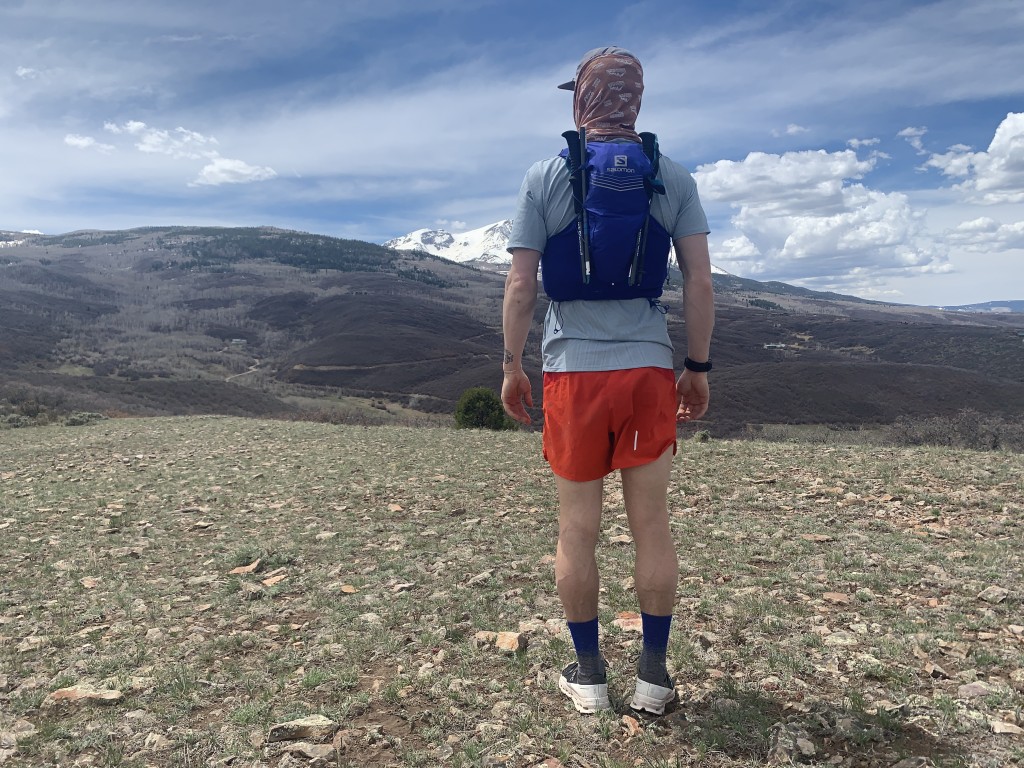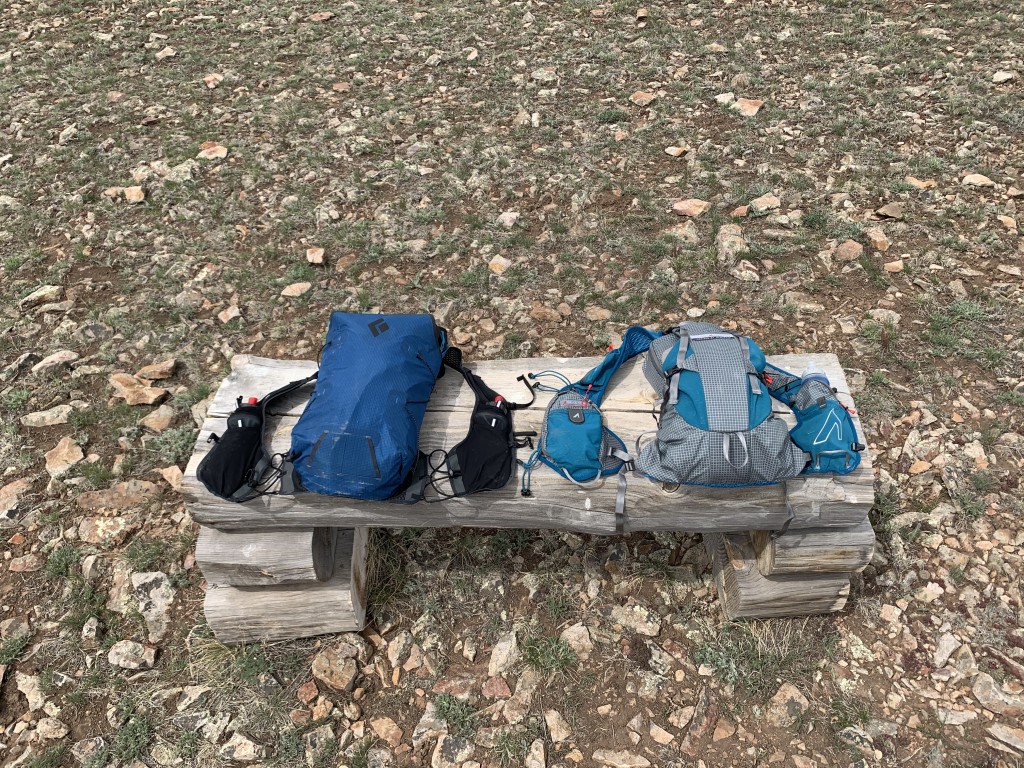To create the most informative running hydration pack review, we researched countless models and consumer reviews, used our past experience, and consulted veteran runners to select an assortment of packs. We purchased them all from online retailers, filled them with the essentials (food, water, layers), strapped them on, and hit the trails. We covered hundreds of miles to learn the strengths and shortcomings of each — information we then pass on to you. Below are the criteria and performance metrics we used to rate each product.
Comfort
From the tarmac to the trails, mesas to mountains, and occasional run commutes to work, we loaded these packs up and wore them in every walk (and run) of life. We ventured out into the desert alpine of New Mexico, the thick mountain timber of Montana, snowy post-holing in the Wasatch, and mountain missions in the Elk Mountains of Colorado. From cold nights to intensely hot days, we tried to tease out which packs were bouncy, chafed, easily adjusted, soft to the touch, too tight, and so on. Comfort levels can change as a pack goes from full of water and food to empty, and some of you may have experienced that even soft flasks can become uncomfortable when they are too full or empty. The best determinant for comfort is wearing a pack and putting in the miles while having an awareness of what the pack is doing and how tinkering with adjustments can help. Having access to a huge pile of other vests for comparison helps in this hunt. After all, if you don't have anything to compare to, how would you know? Well, we had every advantage here and did all this work for you so you can find the perfect vest and a better use for your time.
Features and Design
Each and every vest we tested for this review was unique. Each had its own take on what a hydration pack for running should be and what it should offer the runner. We purposely selected a range of designs: some larger vests for gear-intensive adventures and smaller vests positioned for racing. We nitpicked and compared details, designs, and features. We tested each feature described and gave scores for their user-friendliness and overall effectiveness. Some of the things we found in this category were light-reflective markings, whistles, trekking pole attachments, quick-access storage, and waterproof bulk storage. The packs ranged from those that offered the very basic essentials to packs that probably had more features than we would actually utilize, like ice axe storage.
Hydration System
Rating and testing the hydration system of each vest presented some challenges, as all have different carrying systems despite most vests including either soft flasks or bladders. Each system has advantages, and athlete input in the design comes through depending on the intended purpose — from quickly filling a flask at an aid station or being able to carry lots of water through arid terrain. Factors like capacity, ease of filling, accessibility while running, and leakage all contributed to our testing. Other issues like bottle storage, hose management for packs with hydration reservoirs, and how the water-carrying system impacts the suspension of the pack were also considered in the overall hydration system rating. We differentiate hydration sleeves from pockets if a pack includes soft flasks, and we consider these hydration sleeves as part of the hydration system. If the sleeves were too loose, shallow, or tight or didn't properly secure the soft flasks, we considered this for the hydration system score.
Volume to Weight Ratio
Here at GearLab, we generally prefer to save weight whenever possible. With this category, the packs we tested ranged in size so dramatically that we first put each on a scale to record weight. We're used to putting everything we test on a scale and seeing how it compares to its competitors, and we don't take any manufacturer's word for weight. We then gathered up a light but versatile kit of essential equipment to pack along for every run. Included in our kit were a bag of race-required items, a rain shell, headlamp, phone, small pair of gloves, buff, 1,000 calories of food, and the pack's hydration system full of water. We used the exact same kit for each one of the vests that we tested, and some vests could carry much more, while some couldn't comfortably fit the essentials.
We assessed the functionality of each pack's storage capacity in the field and devised a grading criterion based on the ratio of the volume of storage capacity to the weight of the pack. We don't want to be weighed down mile after mile, but we also know that features and additional storage can add weight. This grade reflects our efforts to level the playing field across varying pack sizes.
Pockets
Finally, we paid special attention to the placement, size, amount, closure systems, and overall volume of the pockets on each hydration pack. The score in this category is an amalgamation of these elements that ultimately shows how useful the pockets on the pack are. Some packs have tons of pockets, but the hydration system impacts the accessibility and utility of the pockets. Others have fewer pockets designed with great intention. A higher rating for merely having more pockets is ridiculous; we scrutinized the efficiency of each pocket and asked the question, is this pocket necessary to help me accomplish my running goal?






